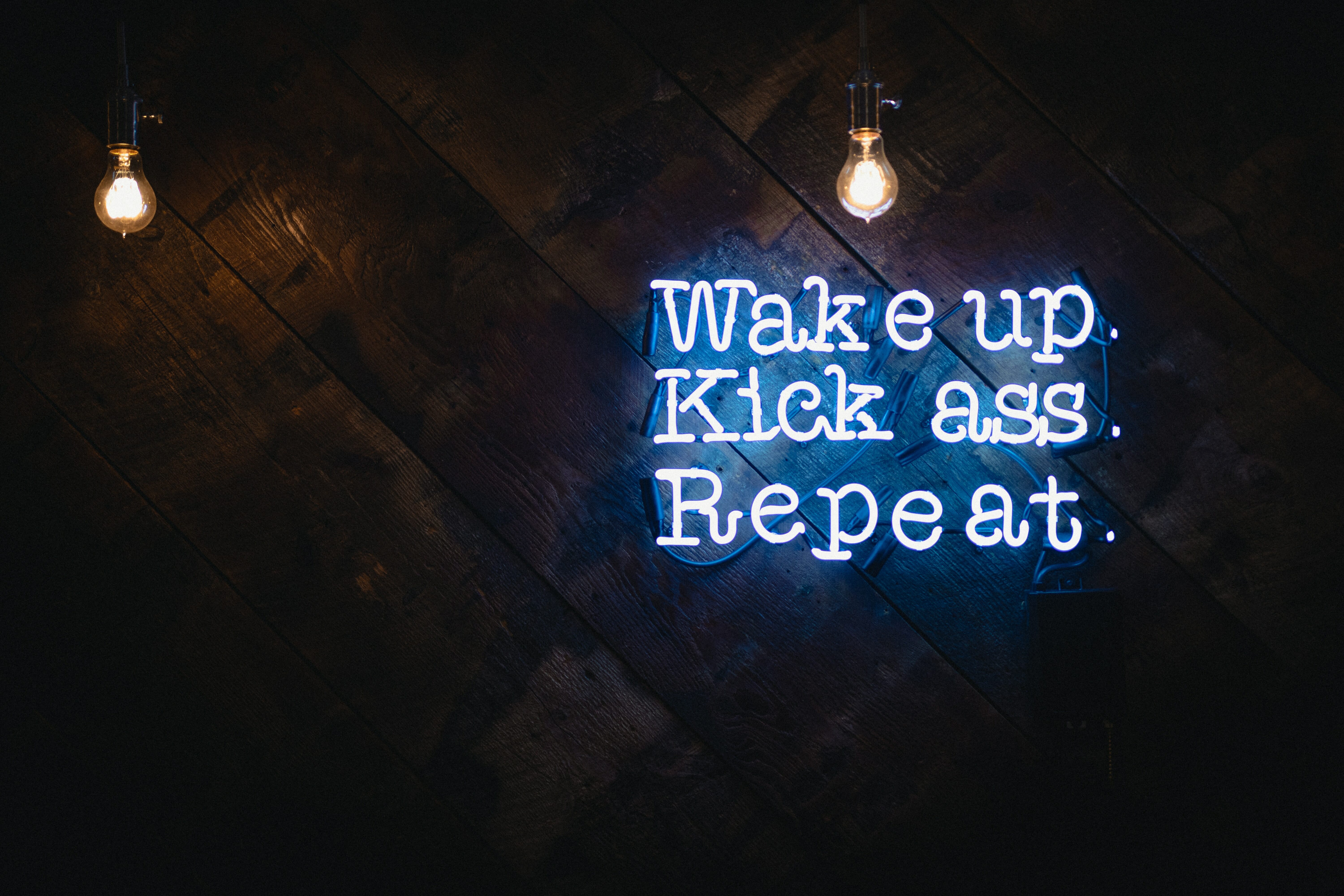Meeting all of your financial obligations feels fantastic. Your monthly credit card debt is paid. Your student loan payment is in the mail. And you just dropped the rent check into your landlord’s mailbox.
It’s a great feeling, but you feel incomplete. It’s like finally landing that promotion at work, and then someone steals your car.
Yes, you did meet every single financial obligation this month – but you’ve got nothing left over. Your bank account is always empty, and you feel like you’ll never have enough money.
I came across a recent Forbes headline that read:
78% of Workers Live Paycheck to Paycheck.
Startling, considering America is one of the wealthiest nations on earth and yet most are a stone’s throw away from financial disaster.
No worries – there is a way out!
And I’m going to show you…
Escape The Consumerist Culture
I heard it repeatedly at my bar job…“Gotta make money tonight; rent’s due tomorrow.”
What a desperate situation. I didn’t pry, but it left me curious:
Either my coworker was overspending or wasn’t earning enough.
If you’re overspending, then you’re never going to save money. But, if you’re not earning enough, you’re never going to save money either. It’s a double-edged sword.
But it goes further than blue-collar jobs. I was introduced to this expression from this podcast episode:
Dear Happiness: Let’s Stop Living Paycheck to Paycheck00:00
Listen to the show every Monday, for free:
These are people earning upwards of $100,000 a year and have nothing to show for it at the end of the month. Overspending in all its glory. They’re making plenty of money but breaking every cardinal rule:
- Spending more than you earn
- Racking up debt
- Not investing the excess
Anyone, regardless of income level, can apply the above three principles and radically improve their financial situation.
Cost Vs. Value
Every purchase you make has two things:
- The cost (what you paid for it in dollars)
- The value (the utility or joy received from the purchase)
They’re two different things but equally important. You might optimize for cost but what are you sacrificing in value? It’s a fine line to walk.
For example, if your job involves a lot of travel, you might opt for buying an expensive piece of luggage because of the long-term value it provides. Cost is irrelevant in this case.
Or, let’s say you’re a writer, and you like to spend extra money on quality pens and stationery. Bic pens aren’t good enough; you prefer Montblanc.
It’s deciding what’s essential and what’s not. When there’s no distinction, you’re spending recklessly. Get clear on what’s worth spending extra money on and trim the fat on excess junk.
Optimizing for cost is important, but there’s another lens to view it through:
Value.
You might lose out in value if all you ever think about is cost.
You can still survive on very little while making individual, value-optimized purchases. Take a look at these guys for some more inspiration on lifestyle adjustments:
We live in a country that embraces consumerism, which is precisely why so many Americans are in debt.Tweet This
Get our best strategies, tools, and support sent straight to your inbox.
SIGN UP, IT’S FREE
Embrace Your Inner-Carol Dweck

Carol Dweck wrote the bestselling book, Mindset: The New Psychology of Success. In a nutshell :
People who believe their abilities aren’t fixed are more likely to flourish. She makes a case for embracing a growth mindset over a fixed mindset. Skills, talents, and behaviors can be developed. Your abilities aren’t fixed. You (yes you!) have the remarkable ability to learn new things.
Living paycheck to paycheck is only temporary. Why?
Because you have the amazing ability to acquire new skills and learn new things that will improve your financial situation!
Here are a few simple steps you can take to harness your inner Carol Dweck (and break the paycheck to paycheck cycle).
Create and Automate Your Emergency Fund
Start by opening a bank account separate from your checking account. Don’t let this money mingle with your working capital. This money is untouchable. Build a stockpile of liquid cash you can nab in a pinch should the shit hit the fan.
High-yield savings accounts are best because you want your money working for you, not sitting idly around in an account earning a paltry 0.02% interest. Look for one that will (attempt to) keep up with inflation. A 2% APY or above is ideal. A few ideas to grease your wheels:
- Betterment’s Smart Saver
- Ally
- Barclay’s
Take a percentage of your take-home pay and set up direct deposits whenever you get paid. Whatever you can afford – even if it’s only 1%. The benefit will be your money flies straight into your emergency fund every paycheck cycle. Pay yourself first.
The amount isn’t significant – getting started is. Rome wasn’t built in a day – and neither is wealth. But if you don’t start, it will never happen.

Lower Costs in the Big Three: Housing, Transportation, and Food
Everyone talks about reducing their latte purchases. Small purchases do add up; however, they don’t represent the bulk of where your money goes every month:
- Housing
- Transportation
- Food
Take a look at how much you’re spending on housing. If it’s more than 33% of your income, find a cheaper alternative. Whether it’s refinancing your mortgage, finding a more affordable apartment, or getting a roommate, there are ways to lower costs.
Do you need your car? Can you walk, bike, or take the subway? Perhaps you can use a service like Turo if you’re only driving a couple of times a week. Cheaply rent a car for a day or two with their service.
Food is another big ticket item. Yes, we need to eat, but do you have to eat out five nights a week? Delivery four nights a week? How much are you spending on groceries? How do your fixed expenses of power, water, and electricity stack up? Try a service like Billshark to negotiate your rates.
These are the big wins. Focusing on these will have a greater effect on how much money you have at the end of the month.
Earn Extra Income Through Side Hustles
Accelerate your savings through side hustles. Take a look at online jobs, consulting work, and freelancing opportunities. Check out the sharing economy and drive for Lyft or assemble IKEA furniture through TaskRabbit. Start a dog walking hustle. Rent your car on Turo (or your parking space on Pavemint!).
Take inventory of your skills and interests, then head to Craigslist to see if you can use any of your talents to solve someone’s problem – while getting paid for it!
Even better, start a side hustle and put 100% of that income towards an emergency fund, financial independence, or retirement. Think of it like buying your future freedom. Set aside that income to break the paycheck to paycheck cycle. Call it your Freedom Account for fun!

Spend Less Than You Earn
The only way to know this figure is to track it. Budgets are a four-letter word so we’re going to view them as training wheels – eventually, you’ll take them off. But not until you’re balanced. If you’ve got no idea what your income and expenses are, you’ll have no idea how to improve them.
Establish your baseline. It will help you get on track. Know your cash flow and get a rough estimate of your expenses in the Big Three (Housing, Transportation, and Food)
“What gets measured gets managed” – Peter Drucker
There are plenty of great tools to help with this endeavor. A few that we love are:
What’s your budgeting style? The Balanced Money Formula (50 30 20 Rule)? The Refrigerator Method? The Envelope System?
Think of it as a jumping off point. Imagine you earn less than you do. Set a maximum dollar amount you’ll spend each month and don’t exceed it. Do this for a couple of months, and you’ll start seeing results.
Your budget is fluid – not static. Find what works best for you. Try out different ideas until you lock in the perfect fit. Your money tracking method should complement your lifestyle, not hinder it.
Crush Your Debt
If you’re carrying high-interest debt (for example a credit card with a 22% APR), pay this off ASAP. Mathematically, it makes sense to take care of this as the interest payments alone will hinder your ability to save anything substantial.
If your debt is too much and you can’t pay off the full statement balance each month, speak with someone about consolidating it. Get a loan to pay off the balance with a lower interest rate. In some instances, you’ll cut your interest rate in half.
Final Thoughts
It’s tough when you’re struggling to make ends meet. I know because I’ve been there. I’m still in the trenches. But I know from experience that following the above steps have helped get me out of my financial quagmire.
Living paycheck to paycheck sucks, but there’s a way out – even if you can’t see it yet. It’s just a step or two away. Start small, track your progress, and be mindful of these three principles:
- Spend less than you earn
- No debt
- Save the excess
In a time where everyone wants to keep up with the Jones’, you’ll be light years ahead of them financially.